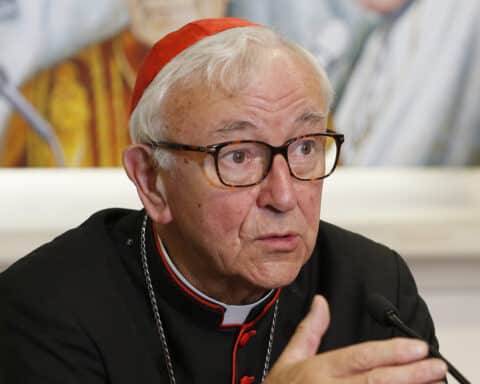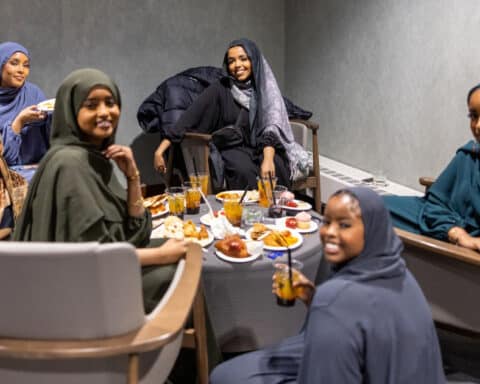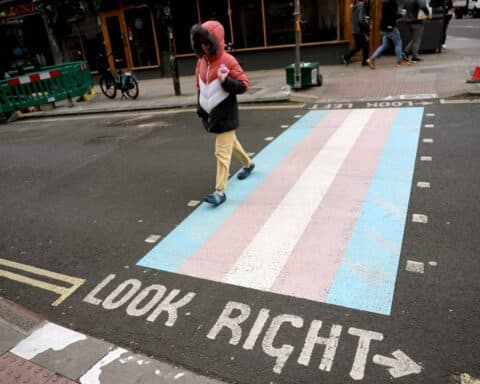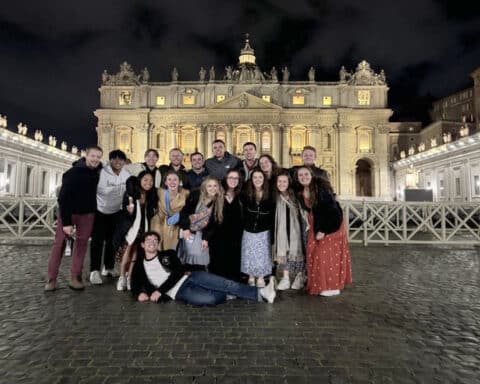To mark International Women’s Day on March 8, the University of St. Thomas in Houston is announcing a new sexuality and gender studies program rooted in the Catholic understanding of the human person.
“That’s what this program is all about: to give leaders the tools they need — philosophical, scientific, and rhetorical — to witness to the beauty and truth of the Catholic understanding of the human person,” Kevin Stuart, director of the university’s Nesti Center for Faith and Culture, announced in a press release.
As program manager at the Nesti Center for Faith and Culture, Leah A. Jacobson confirmed that the center will offer a graduate certificate in Sexuality and Gender, along with a Master’s program in Catholic Women’s and Gender Studies, beginning this fall.
“The MA will really be a first of its kind WGS [Women’s and Gender Studies] program,” Jacobson told Our Sunday Visitor of the Master’s program. “As far as I know, there are no other programs, anywhere, that seek to study these issues from the perspective of fidelity to the magisterium and advancement of women’s position and dignity in the world.”
As a kind of precursor to the Master’s program, the university will launch the graduate certificate with a press conference on March 8. The certificate promises to “equip students with the truth of Catholic intellectual tradition as they tackle controversial subjects of gender and sexuality in professional spheres,” according to the university press release.
Looking at the new gender courses
Offered online, the certificate features four courses: History of Sexuality & Gender; Human Person: Body and Soul; Science of Sexuality & Gender; and Sex & Gender in Professions. The part-time program offers flexibility for students nationwide, whether they are working professionals or stay-at-home parents. Students can start the program at any time and finish at their own pace.
Anyone with an interest can enroll, Jacobson encouraged.
“I think it was really created specifically, though, for those who will confront these issues vocationally and in professional life,” she added, “and who have a desire and/or obligation to properly represent the teachings of the Catholic Church in their sphere of influence.”
In addition to Stuart and Jacobson, confirmed staff members for the program include Erika Bachiochi, a fellow at the Ethics and Public Policy Center and a senior fellow at the Abigail Adams Institute, where she directs the Wollstonecraft Project, and Amy Hamilton, research associate at the University of Texas at Austin.
Celebrating International Women’s Day
Jacobson shared why the university chose to celebrate the launch of the graduate certificate on International Women’s Day.
“We chose this day because it is a day when the whole world stops to acknowledge that there is something magnificent about the way women were created,” she said. “There is something noteworthy and special about the difference between men and women, and the secular culture is pausing to celebrate that difference by elevating women on this day.”
She added: “This is, in a sense, a contrast to the dangerous ideology that threatens to erase the difference between men and women.”
Jacobson described the program’s approach to women and men.
“Our program is going to highlight human dignity for both men and women and connect our dignity with our sexuality,” she said. “It is part of who we are as men and women and is not something to be ashamed of.”
She hoped that all students leave with “a greater appreciation of sexual difference and the complementarity of the sexes in relation to one another.”
Creating a new kind of program
Jacobson credited Stuart’s vision for inspiring the new program.
“He really identified in his work the need to address these pressing issues from an authentically Catholic perspective,” she said of the center’s director. “His experiences in academia convinced him that there is a need for the average Catholic, and especially the Catholic professional, to understand the science and the theology surrounding sexuality and gender in order to deal with this in a more comprehensive way.”
She cited Pope Francis, who warned against the “ideology of gender” last year during an interview with the Argentine daily newspaper, La Nación.
“The ideology of gender is, at this time, one of the most dangerous ideological colonizations. It goes far beyond the sexual,” he said at the time. “The richness that is of men and women, and of all humanity, is the tension of the differences. It is to grow by means of the tension of the differences. The matter of gender is diluting the differences and making the world the same, all dull, all equal. And that goes against the human vocation.”
Responding to a call from Pope Francis
Jacobson suggested that the university’s new program responds to the pontiff’s concern.
“We have really good news in the teachings of the Catholic Church about sexuality and gender, and this is something that we Catholics need to lean into talking about right now,” she stressed.
She hoped that the program arms students with knowledge and understanding.
“I hope that every student that completes the Sexuality and Gender certificate walks away with confidence and a feeling of conviction that the teachings of the Catholic Church are a sure guide for creating policies that will produce human flourishing and happiness,” she said. “But more importantly, I hope that we will be sending our students out with an understanding of how to charitably engage the culture and accompany those who are struggling with these issues.”
She added: “The world needs Catholics who are not afraid to go beyond the walls of our churches and bring the truth and the love of Christ to everyone in need.”
Looking ahead
The graduate certificate and Master’s program will complement one another, Jacobson said.
“The two programs really are meant to work together with the certificate using the same courses from the MA program and serving as kind of a ‘sampler platter’ to the larger MA program,” she explained.
The university, she said, is currently creating the institutional infrastructure to begin accepting applications for the Master’s program.
“This will be the first time you can study feminism and women’s health and gender ideology in an atmosphere that truly desires to remain faithful to the Catholic Church and explores how the Church’s teachings intersect and create tension with the teachings of the world,” she said.





